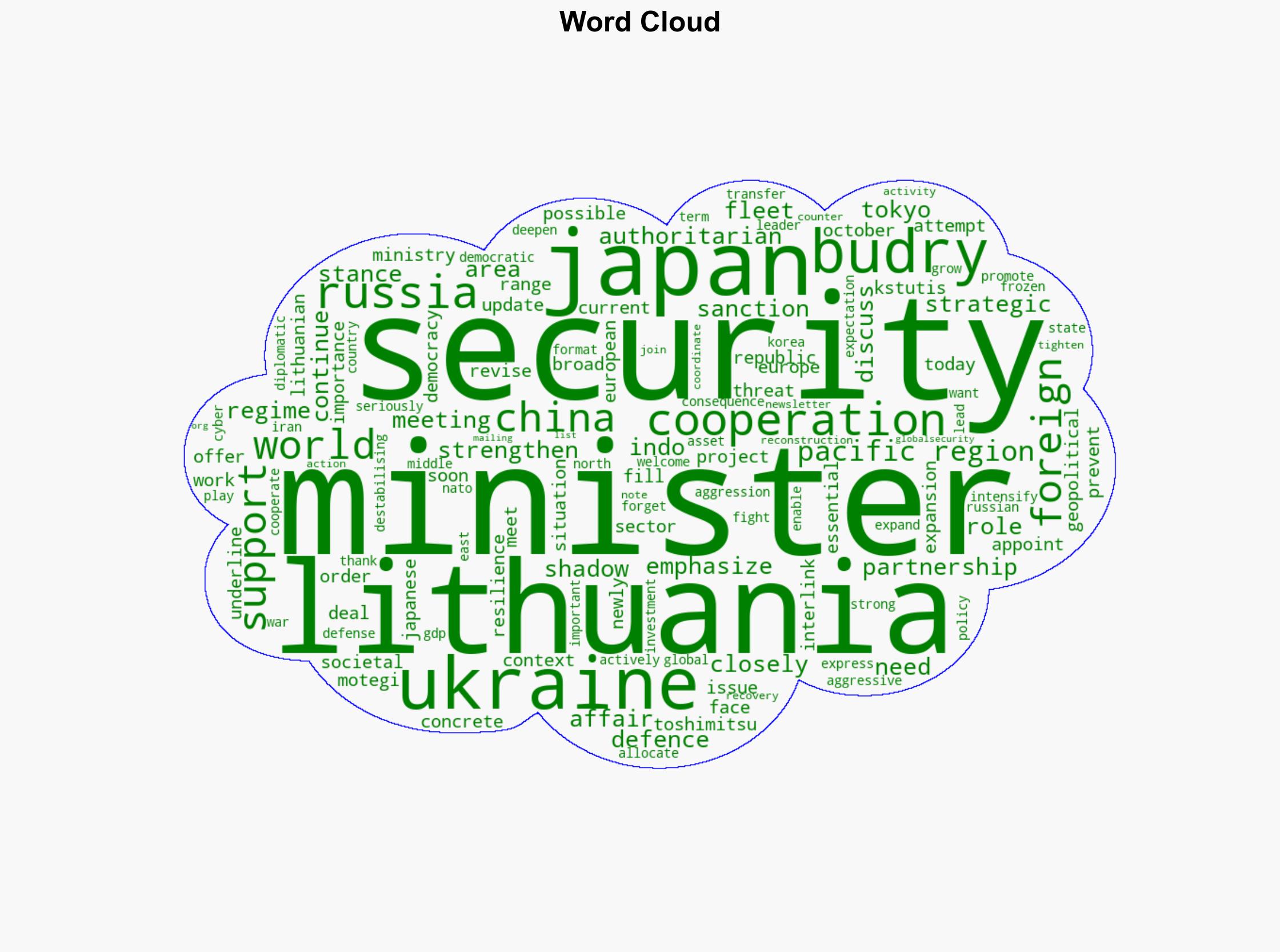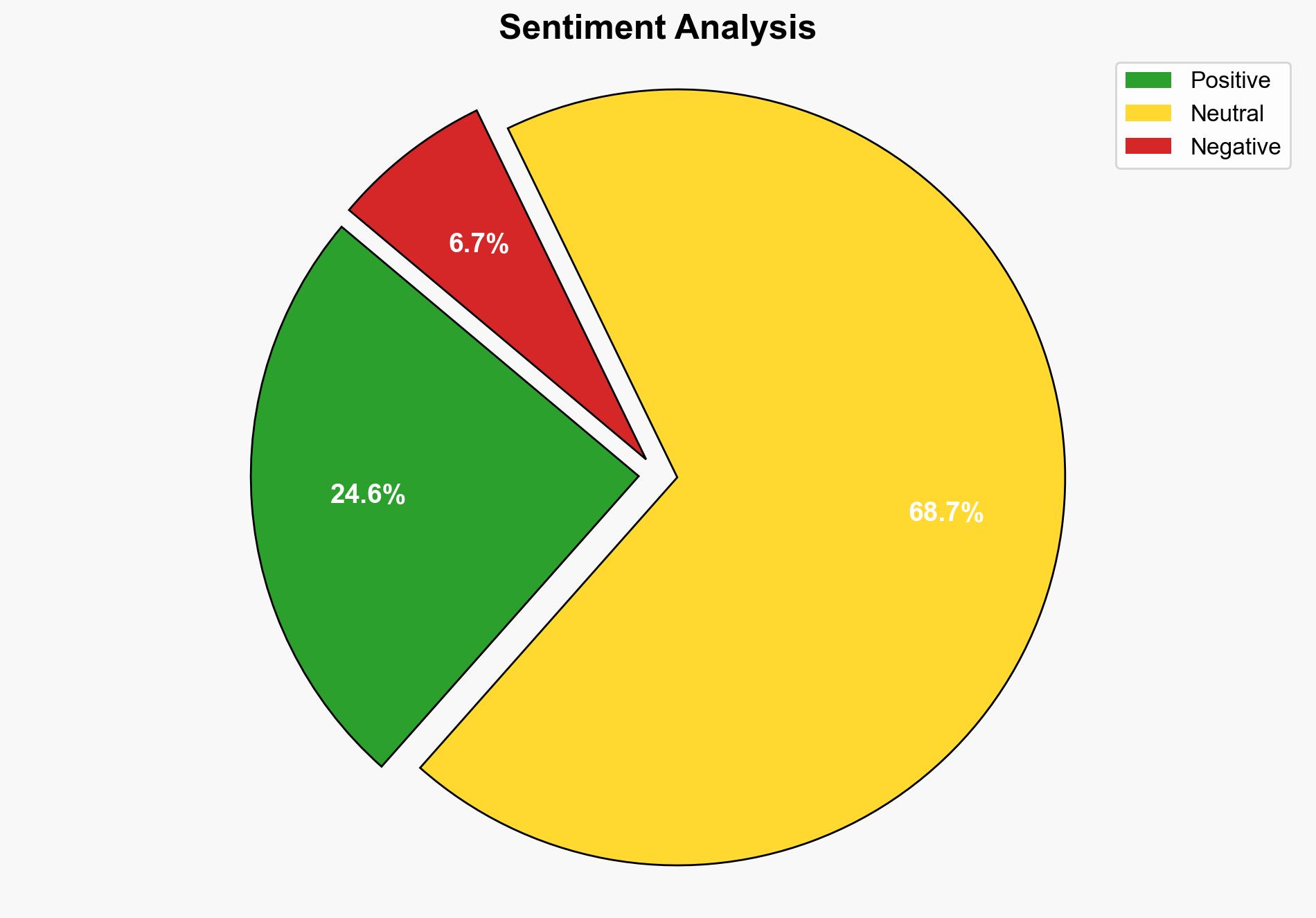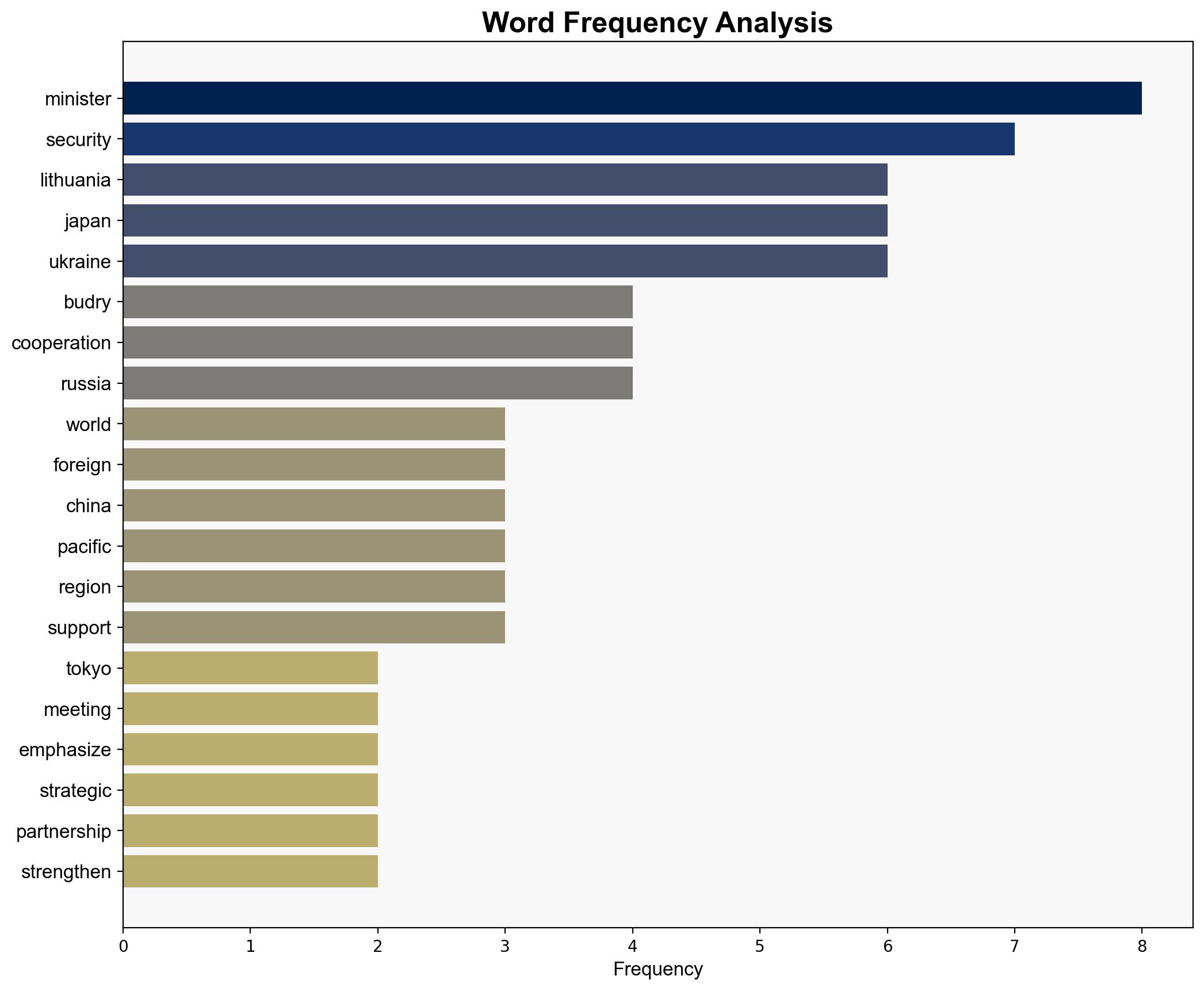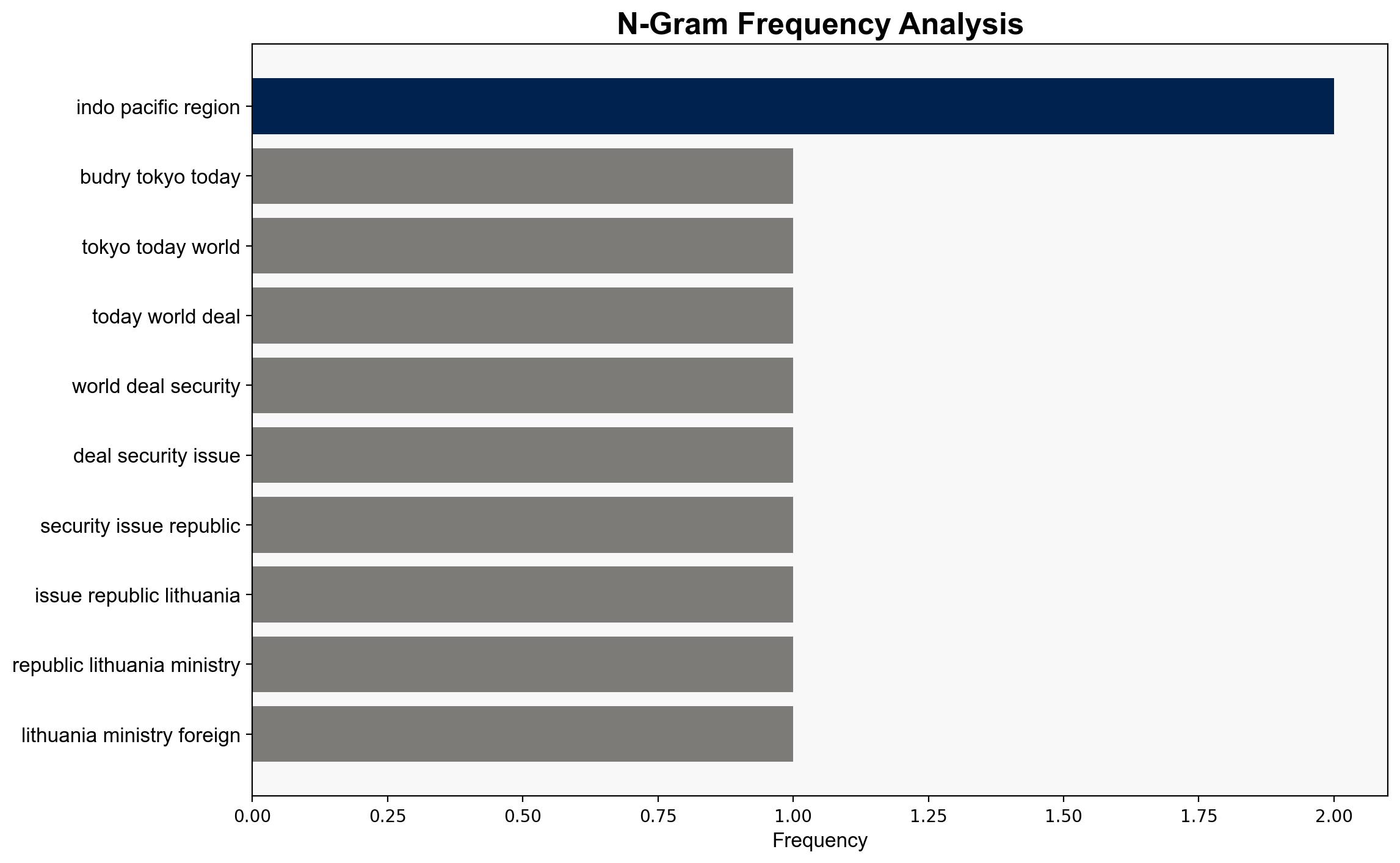Budrys in Tokyo In today’s world we are dealing with the same security issues – Globalsecurity.org
Published on: 2025-10-24
Intelligence Report: Budrys in Tokyo In today’s world we are dealing with the same security issues – Globalsecurity.org
1. BLUF (Bottom Line Up Front)
The most supported hypothesis is that Lithuania and Japan are strategically aligning to counterbalance the influence of authoritarian regimes, particularly Russia and China, in both Europe and the Indo-Pacific region. Confidence Level: Moderate. Recommended action includes enhancing diplomatic and military cooperation between Lithuania, Japan, and their allies to fortify regional security frameworks.
2. Competing Hypotheses
1. **Hypothesis A**: Lithuania and Japan are strengthening their strategic partnership primarily to counter Russian aggression and influence in Europe and the Indo-Pacific, with a secondary focus on China’s regional ambitions.
2. **Hypothesis B**: The meeting between Lithuania and Japan is more symbolic, aimed at showcasing international solidarity against authoritarian regimes, with limited immediate impact on regional security dynamics.
Using ACH 2.0, Hypothesis A is better supported due to explicit mentions of cooperation in defense, cybersecurity, and sanctions against Russia, indicating tangible steps beyond symbolic gestures.
3. Key Assumptions and Red Flags
– **Assumptions**: It is assumed that both Lithuania and Japan have the capacity and willingness to significantly influence regional security dynamics. Another assumption is that their strategic interests align closely enough to sustain long-term cooperation.
– **Red Flags**: The lack of specific details on concrete cooperation projects raises questions about the depth of the partnership. Additionally, potential over-reliance on diplomatic rhetoric without corresponding action could undermine the partnership’s effectiveness.
4. Implications and Strategic Risks
The strategic alignment between Lithuania and Japan could provoke counteractions from Russia and China, potentially escalating tensions in both Europe and the Indo-Pacific. Economically, increased sanctions on Russia could lead to retaliatory measures affecting global markets. Cybersecurity cooperation may deter cyber threats but could also lead to increased cyber espionage efforts by adversaries.
5. Recommendations and Outlook
- Enhance intelligence-sharing mechanisms between Lithuania, Japan, and allied nations to preempt and counteract potential threats.
- Develop joint military exercises to improve interoperability and readiness.
- Scenario-based Projections:
- Best Case: Strengthened alliances deter aggressive actions by authoritarian regimes, stabilizing regional security.
- Worst Case: Escalation of tensions leads to military confrontations or cyber-attacks.
- Most Likely: Gradual enhancement of regional security cooperation with periodic diplomatic tensions.
6. Key Individuals and Entities
– Kstutis Budrys
– Toshimitsu Motegi
7. Thematic Tags
national security threats, cybersecurity, counter-terrorism, regional focus




